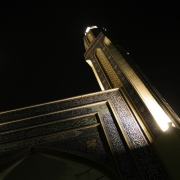Islam and the Challenge of Epistemic Sovereignty – Joseph E. B. Lumbard
Abstract:
The search for knowledge has been central to the Islamic tradition from its inception in the Quran and the sayings of the Prophet Muhammad (ahadith). The injunctions to obtain knowledge and contemplate the signs of God in all things undergird a culture of ultimate questions in which there was an underlying epistemic unity among all fields of knowledge, from the religious sciences to the intellectual sciences to the natural sciences. Having lost sight of the underlying metaphysic that provides this epistemic unity, many thinkers in the modern period read the classical Islamic texts independently of the cognitive cartography and hierarchy of which they are a part. This approach leads to further misunderstandings and thus to a sense of hermeneutical gloom and epistemic subordination characteristic of coloniality. Postcolonial theory provides effective tools for diagnosing the process by which this epistemic erosion produces ideologically and epistemically conscripted subjects. But as it, too, arises from within a secular frame, it is only by understanding the cognitive cartography of the sciences within Islam that epistemic confidence and sovereignty can be reinstated









